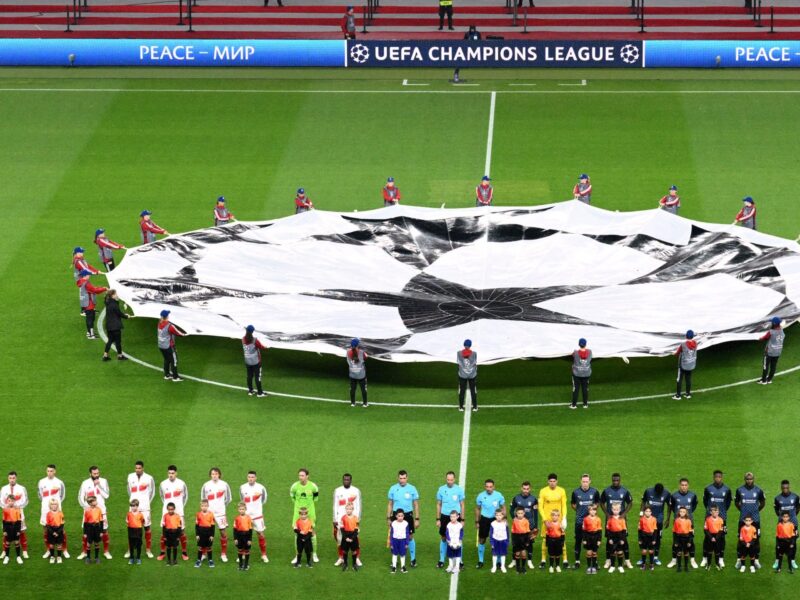Understanding the Controversy: Why UEFA Approved League Matches Abroad Despite Strong Opposition
1. Introduction: A Surprising Decision
In a move that highlights a significant policy conflict in European football, UEFA has approved requests for two domestic league matches to be played on foreign soil: LaLiga’s Villarreal vs. Barcelona in Miami and Serie A’s AC Milan vs. Como in Perth. This decision came with a notable caveat, as UEFA simultaneously expressed its clear opposition to the practice, labeling the approval “regrettable” and insisting it should not be seen as a precedent for the future. This apparent contradiction sets the stage for a deeper look into the governance and principles of European football.
To grasp why UEFA would approve something it fundamentally opposes, it is crucial to first understand the organization’s official and long-standing position on the issue.
2. UEFA’s Official Position: A Firm “No” to Games Abroad
At its core, UEFA’s governance is built on the principle that domestic competitions should remain domestic. The organization has consistently stood against the idea of relocating league matches outside of a league’s home country, a stance confirmed through extensive consultation with fans, clubs, players, and other leagues.
The most direct articulation of this policy comes from UEFA President Aleksander Čeferin, who encapsulates the organization’s philosophy:
“League matches should be played on home soil; anything else would disenfranchise loyal match-going fans and potentially introduce distortive elements in competitions. Our consultation confirmed the breadth of these concerns.”
This statement provides a clear window into the key arguments that underpin UEFA’s opposition.
3. The Core Arguments: Protecting Fans and Fair Play
UEFA’s resistance to playing league matches abroad is not arbitrary; it is founded on three primary pillars intended to safeguard the integrity and culture of the sport.
- Disenfranchising Fans: The primary concern is for the local, loyal supporters who form the bedrock of a club’s community. Moving a home game to a different continent effectively excludes these match-going fans, severing a critical link between the club and its core supporter base.
- Upholding Competition Integrity: Taking a league match out of its regular context introduces what UEFA terms “distortive elements.” This could involve changes in travel demands, fan support, and playing conditions that could unfairly impact the competitive balance of the league over a season.
- Preserving Community Bonds: Football clubs are more than just businesses; they are vital community institutions. UEFA argues that the “close bond between clubs, their supporters and local communities” is essential to the health of the game. Playing matches abroad threatens to weaken this fundamental relationship.
Given these deeply held objections, the question naturally arises: why were these specific requests from the Spanish and Italian leagues approved?
4. The Loophole: Why These Games Were Approved
The decision to permit the matches in Miami and Perth was not a change in policy but rather a reluctant concession forced by a gap in the existing global regulations. The approval was a direct consequence of an unclear international framework governed by FIFA.
| The Problem: FIFA’s Rules | The Consequence: UEFA’s Decision |
| The current FIFA regulatory framework is “not clear and detailed enough” to provide a firm basis for rejecting the requests. | Because of this lack of clarity, UEFA “reluctantly” took the decision to approve the two games “on an exceptional basis.” |
This one-time exception, driven by a regulatory loophole, has now intensified the push for a permanent and unambiguous solution.
5. Looking Ahead: The Path to Clearer Rules
Rather than signaling an open door for future international matches, UEFA’s decision has acted as a catalyst for reform. The organization has made it clear that this issue must be addressed at the global level.
The relevant FIFA framework is currently under official review, and UEFA has committed to being a central part of that process. The organization will “actively contribute to the ongoing work led by FIFA” with a clear objective: to establish future rules that definitively protect the integrity of domestic competitions. By doing so, UEFA aims to fulfill its stated commitment: “to protect the integrity of national leagues and ensure that football remains anchored in its home environment”.





